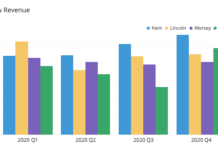The Hollywood-China Nexus: A Dance of Dollars and Diplomacy
The Chinese film market, with its enormous audience and impressive growth rates, presents a golden opportunity for Hollywood. Yet, the complex dynamics of this nexus pose formidable challenges for Western filmmakers. As they navigate the cultural, political, and regulatory terrain, they frequently face a stark reality: China’s stringent censorship laws, which offer little respite for politically sensitive content or narratives that might tarnish China’s image.
Censorship in China: An Unforgiving Barrier to Hollywood
Notorious for its unforgiving censorship, China has often stonewalled Hollywood’s attempts to penetrate its vast cinema market. There is a long history of films like “Ghostbusters” (2016) and “Christopher Robin” (2018) falling afoul of the authorities’ guidelines. While “Ghostbusters” was penalized for allegedly promoting superstition, “Christopher Robin” was sidelined due to a complex weave of cultural and political considerations. Each film’s fate underlines the Chinese censorship’s unpredictability, even when Hollywood’s commercial interests are at stake.
The Uncertain Voyage of ‘Oppenheimer’
At the crossroads of this volatile mix of commerce and censorship, stands the highly anticipated film “Oppenheimer.” Focusing on the life and achievements of J. Robert Oppenheimer, the lead scientist of the Manhattan Project, the movie’s theme could potentially ignite the tinderbox of Chinese censorship. The film’s narrative, threading on the sensitive issue of nuclear proliferation, could be seen as politically sensitive, or even worse, as containing anti-China sentiment.
However, the allure of financial success in the lucrative Chinese market may still coax the film’s producers into weathering the storm of censorship, despite the potential backlash. It’s a risk that many in Hollywood have been willing to take, given the substantial returns at stake.
Artistic Vision and Commercial Realities: A Delicate Balancing Act
The saga of “Oppenheimer’s” potential release in China brings into sharp focus the delicate balancing act that filmmakers often face. On one hand, they strive to maintain artistic vision and narrative integrity; on the other hand, they grapple with the realities of commerce and regulation. The challenge lies in striking a harmonious balance, a task that is easier said than done.
Cinematic Diplomacy: Films as a Tool for Cultural Exchange
The unfolding story of “Oppenheimer” illuminates the role of cinema beyond mere entertainment. It underscores its potency as a conduit for cultural exchange and soft power, mirroring the pulse of global politics. To delve deeper into the intricacies of this phenomenon, you can refer to this insightful blog post, which elaborates further on the subject.
The Verdict: A Wait-and-Watch Game
As things stand, the fate of “Oppenheimer” in China is shrouded in uncertainty. Will the film sail through the stormy seas of Chinese censorship, or will it be marooned on the shores of regulatory restrictions? Only time will tell.
The final outcome, whichever way it sways, will offer invaluable insights into the intricate dynamics of global cinema, the far-reaching arm of censorship, and the nuanced dance of cultural diplomacy. It ser
es as a vivid reminder of the complex interplay between art, commerce, and politics in the world of international cinema. As the world awaits with bated breath, the journey of “Oppenheimer” promises to be as compelling as the film itself.


















